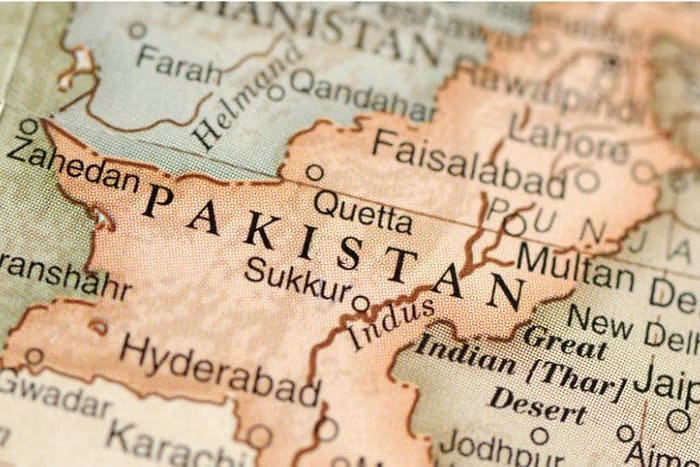
Shipping goods from China to Pakistan has become an essential aspect of modern trade relations between the two countries. The process involves multiple modes of transportation, customs regulations, and understanding both countries’ legal frameworks. As a trade partner, China has been pivotal for Pakistan, not only due to their bilateral agreements but also due to China’s manufacturing capabilities and Pakistan’s need for diverse products.
Navigation through this domain requires a grasp of the specifics of freight options available, such as sea shipping and air shipping, which are the most common shipping methods from China to Pakistan. Sea freight usually offers the benefit of lower costs for substantial quantities of goods, whereas air freight can provide faster delivery for urgent or high-value items. Understanding the nuances of each option allows you to make informed decisions based on cost, speed, and volume.
Moreover, to ensure the smooth transition of your cargo from China to Pakistan, you must be well-versed with the necessary documentation and compliance requirements. This includes having detailed knowledge of import duties, taxes, and the necessary permits. Different types of goods may also require special consideration and adherence to particular regulations or certifications peculiar to Pakistan. Navigating these complexities with due diligence is crucial for effective and efficient shipping practices.
Shipping Methods
When you’re looking to conduct trade between China and Pakistan, you have several shipping options to consider, each with its benefits and limitations. Gaining familiarity with the details and characteristics of the various shipping methods will empower you to make the most suitable choice for your particular situation and business needs.
Sea Freight
Sea freight from China to Pakistan is generally the most economically attractive method, especially for large shipments. Ships can carry large volumes of goods, making them suitable for heavy and bulk shipments.
| Major Seaports in China | Major Seaports in Pakistan |
| Port of Shanghai | Port of Karachi |
| Port of Shenzhen | Port Qasim |
| Port of Guangzhou | Gwadar Port |
| Port of Tianjin | Bin Qasim Port |
| Port of Qingdao |
Air Freight
Air freight is the fastest but the most expensive way to ship from China to Pakistan. It is appropriate for high-value or time-sensitive goods.
| Major Airports in China | Major Airports in Pakistan |
| Beijing Capital International Airport (PEK) | Jinnah International Airport (KHI) |
| Shanghai Pudong International Airport (PVG) | Allama Iqbal International Airport (LHE) |
| Guangzhou Baiyun International Airport (CAN) | Benazir Bhutto International Airport (ISB) |
| Shenzhen Bao’an International Airport (SZX) | Bacha Khan International Airport (PEW) |
| Hangzhou Xiaoshan International Airport (HGH) | Quetta International Airport (UET) |
| Xi’an Xianyang International Airport (XIY) | Faisalabad International Airport (LYP) |
Rail Freight
Rail freight is becoming more popular for its balance of speed and cost compared to air and sea freight. The China-Pakistan rail link connects major industrial hubs in China with Pakistan, offering a reliable alternative to traditional shipping methods. Rail is generally faster than sea and cheaper than air freight, suitable for various goods.
Cost Considerations
When shipping from China to Pakistan, understanding the various costs involved is crucial. These can vary widely depending on the type and size of your shipment and your specific requirements.
Freight Charges
Your primary expense is freight charges, the cost to ship goods from the seller in China to you in Pakistan. These charges are usually based on the mode of transport you choose:
- Sea Freight: Often the most economical for large shipments, calculated per container.
- Less than Container Load (LCL) is priced per cubic meter.
- Full Container Load (FCL) is fixed per container size (20ft, 40ft, etc.).
- Air Freight: Faster but more expensive, priced by weight and volume.
| Transport Modes | Freight Rates |
| Sea Freight | $1000 to $1250 for a 20-foot container $1500 to $2000 for a 40-foot container |
| Air Freight | $6-8 per kg depending on shipment size and delivery requirements |
Insurance Fees
It’s wise to invest in insurance to protect against potential transit damage or loss. Insurance fees typically constitute a small percentage of the cargo’s declared value. Factors affecting your insurance rates include:
- Type of goods: Fragile items may have higher rates.
- Shipment value: Higher-value goods cost more to insure.
Additional Costs
Be prepared for additional costs, which can be numerous:
- Customs Duties and Taxes: Varies according to the commodity and its value.
- Handling Fees: Charges for loading/unloading and paperwork.
- Storage Fees: If your shipment needs to be stored during transit.
- Inland Transportation: Costs to move your cargo to/from ports or airports.
- Surcharges: Fuel, currency adjustment, and peak season surcharges may apply.
Each of these factors needs to be taken into account to manage your overall shipping budget effectively.
Shipping Timelines
Shipping timelines are key to planning your logistics from China to Pakistan, with variations during peak and off-peak periods. Proper knowledge of these timelines ensures your cargo arrives as expected.
| Transport Modes | Freight Times |
| Sea Freight | 22-24 days |
| Air Freight | 3-5 days |
Peak Seasons
During peak seasons, you can expect longer shipping times due to the high demand for cargo space. The busiest times typically include:
- Chinese New Year: Shipping operations often slow down or halt for up to a month, around January or February.
- Golden Week: The first week of October can see delays as China celebrates this national holiday.
- Pre-Christmas Period: The rush to get goods before the holidays can extend transit times from October through December.
Keep in mind that shipping during these periods can take several weeks longer than usual.
Off-Peak Periods
The best shipping times from China to Pakistan usually occur during the off-peak periods:
- February to Early April: After the Chinese New Year and before the summer rush.
- Late April to Early June: Right after the Golden Week and before the summer peak season begins.
During these windows, you’ll find shipping to be more predictable and often faster, as there is less congestion at ports and more available cargo space.
Customs Clearance Process

The customs clearance process when shipping goods to Pakistan requires careful submission of documentation, understanding applicable duties and taxes, and strict adherence to import restrictions.
Required Documentation
To successfully clear customs, you need the following documents:
- Commercial Invoice: A detailed list of shipped goods, including value and origin.
- Packing List: Specifies the contents of each package.
- Bill of Lading (B/L) or Air Waybill: The contract between you and the carrier.
- Certificate of Origin: Confirms the goods were obtained, manufactured, or processed in China.
- Import License: Required for certain goods, provided by Pakistani authorities.
- Insurance Certificate: If insurance has been purchased for the shipment.
Ensure these documents are accurate and presented in full to avoid delays.
Duties and Taxes
Duties and taxes must be calculated and paid. They vary depending on the type of goods and their value. Use the following table as a guide for typical charges:
| Item Category | Duty Rate | Sales Tax |
|---|---|---|
| Electronic Goods | 20% | 17% |
| Textiles | 15% | 17% |
| Agricultural Products | 10% | 7% |
Please check with the Federal Board of Revenue for the latest rates on your specific items.
Import Restrictions
Pakistan imposes restrictions on the following:
- Prohibited Goods: Narcotics, obscene and subversive material, etc.
- Restricted Goods:* Firearms, certain medicines, and other items that might require special permits or licenses.
Stay informed about the latest updates on forbidden or restricted goods to ensure compliance.
Cargo Safety and Insurance
When shipping your goods from China to Pakistan, ensuring the safety of your cargo and understanding insurance options is critical. These measures can protect your financial interest in the goods being shipped.
Packing Standards
Your cargo’s protection relies on adhering to stringent packing standards. Use durable materials that can withstand long transit times and various handling conditions. For example:
- Boxes: Triple-wall corrugated boxes for heavy items.
- Cushioning: Bubble wrap or foam inserts for fragile goods.
- Sealing: Strong polypropylene or vinyl tape for sealing boxes.
- Labels: Clear, waterproof, and accurate labeling on each parcel.
Insurance Policies
Choosing the right insurance policy can save you from significant losses. Insurance should cover potential risks including damage, loss, and theft. Key policy types include:
- All-Risk Insurance: Covers most causes of loss or damage.
- General Average Insurance: Provides coverage in collective loss situations.
- Particular Average Insurance: Applies to partial losses specific to your shipment.
Be sure to understand the terms of your policy, including coverage limits and exclusions.
Claim Procedures
In the event of loss or damage, there’s a structured claim procedure to follow:
- Notification: Immediately inform your insurance provider about the incident.
- Documentation: Submit all necessary documents, which typically include:
- A completed claim form.
- The original bill of lading.
- A commercial invoice.
- A packing list.
- Photos of the damage, if applicable.
- Assessment: The insurer will assess your claim based on the provided documentation.
- Resolution: If approved, the claim will result in reimbursement based on your policy terms.
Regulatory Compliance
When dealing with shipping from China to Pakistan, you must adhere to the specific export and import regulations set by both countries to avoid legal issues and ensure smooth transactions.
Chinese Export Regulations
Before you export goods from China, you must ensure that your shipments comply with the export control laws and regulations. The key Chinese authorities involved are the Ministry of Commerce (MOFCOM) and the General Administration of Customs. Here’s what you need to know:
- Documentation: Provide Export Licenses and Customs Declarations when required.
- Restricted Items: Some goods are subject to export restrictions or require additional permits.
- Safety Standards: Products must meet China’s export safety standards and labeling requirements.
Pakistani Import Regulations
Upon arrival in Pakistan, imports are regulated by the Pakistan Customs Services under the Federal Board of Revenue. Familiarize yourself with the following:
- Documentation: Ensure you have a complete set of import documents, including the Bill of Lading, Commercial Invoice, and Certificate of Origin.
- Duties and Taxes: Calculate and be prepared to pay the applicable Customs Duties and Sales Taxes.
- Prohibited Items: Check the list of prohibited items that cannot be imported into Pakistan to prevent confiscation or penalties.
Tracking and Technology

When shipping from China to Pakistan, you benefit from advanced tracking systems and technology integration that modern logistics have to offer.
Real-Time Tracking Systems
Your ability to monitor shipments from China to Pakistan is enhanced through real-time tracking systems. These systems use GPS and other satellite-based technologies to give you up-to-the-minute updates. You can expect:
- Location Updates: Know the exact location of your shipment at any given time.
- Estimated Time of Arrival (ETA): Accurate predictions of when your shipment will reach its destination.
Technology Integration
The seamless integration of technology in shipping operations ensures efficiency and transparency in your logistics process. This includes:
- Electronic Data Interchange (EDI): Automated transfer of shipping documents reduces errors and speeds up customs clearance.
- APIs & Web Services: Easy integration with your internal systems for continuous data flow and communication.
Challenges and Solutions
You may face several logistical challenges when importing goods from China to Pakistan. Addressing these issues promptly ensures a smoother and more efficient shipping process.
Delivery Delays
You might encounter delivery delays that can affect your supply chain due to various factors, such as weather, congestion at ports, and issues with shipping lines. To mitigate these delays, consider:
- Planning Ahead: Schedule your shipments during off-peak times.
- Diversifying Carriers: Use multiple shipping lines to spread the risk.
- Real-Time Tracking: Employ GPS or RF technology for up-to-date information on your cargo’s location.
Customs Hold-Ups
Customs hold-ups can significantly slow down the shipping process. Factors contributing to these hold-ups include improper documentation and random inspections. Solutions to expedite customs clearance:
- Accurate Paperwork: Ensure all your documents are precise and complete.
- Customs Broker: Engage with a reputable broker to navigate the customs process on your behalf.
Damage Mitigation
Your goods may be prone to damage during transit. You can decrease the risk of damage with:
- Quality Packaging: Use durable materials and package your goods correctly to withstand long journeys.
- Insurance: Obtain comprehensive insurance coverage to protect against potential losses.
By proactively addressing each of these challenges with the given solutions, you can enhance the efficiency of your shipping process from China to Pakistan.
Why Choose Us? Luckystar Logistic
Luckystar, founded in 2022, is a distinguished member of the Federal Maritime Commission (FMC) and operates as a Non-Vessel Operating Common Carrier (NVOCC). The freight forwarding company primarily serves China, the USA, Canada, and Europe, striving to offer top-notch service quality at lower costs. With a core team possessing over 20 years of logistics experience, Luckystar brings substantial expertise to the table. Since its establishment, the freight forwarder has remained steadfast in its commitment to offering global door-to-door delivery, focusing on reliability, flexibility, and promptness.
We help you calculate the shipping cost and leverage our route knowledge and relationships to optimize logistics, balancing cost, speed, and reliability. We offer the best solution and freight service from China to Pakistan.
Please contact us for further assistance if you have any other questions or need more details on the delivery service. We strive to help businesses make informed freight mode selections and facilitate freight from China to Pakistan.
